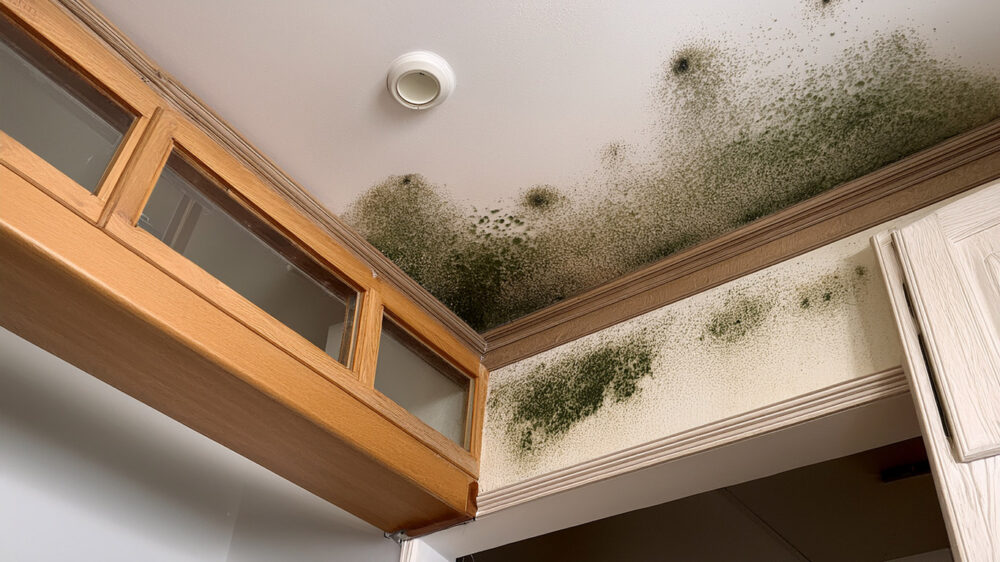Mold thrives in damp environments, making high-humidity homes the perfect breeding ground. If left unchecked, mold can damage your home and pose health risks, including allergies and respiratory issues. The good news? You can take proactive steps to prevent mold growth and keep your living space clean and healthy.

Control Indoor Humidity
The first step in mold prevention is managing humidity levels. Ideally, indoor humidity should be between 30-50%. Use a hygrometer to monitor moisture levels and invest in a dehumidifier if needed. Running air conditioners during warmer months can also help maintain balanced humidity.
Improve Ventilation
Poor air circulation leads to excess moisture buildup. Open windows whenever possible to allow fresh air in, especially after cooking or showering. Use exhaust fans in bathrooms, kitchens, and laundry rooms to vent humid air outside. If your home lacks proper ventilation, consider installing a whole-house fan or air exchanger.
Fix Leaks and Water Issues
Unchecked leaks provide the perfect environment for mold growth. Regularly inspect pipes, roofs, and windows for signs of leaks. If you notice water stains or damp spots, fix the problem immediately. Even minor leaks can lead to mold if left unresolved.
Use Mold-Resistant Materials
If you’re renovating or building, choose mold-resistant drywall, paint, and insulation for moisture-prone areas. In bathrooms and basements, opt for tile flooring instead of carpet, which absorbs moisture and encourages mold growth.
Keep Surfaces Dry
Water left sitting for long periods creates a mold-friendly environment. Wipe down bathroom walls, kitchen counters, and windows regularly. Avoid leaving wet towels, sponges, or laundry in humid areas, as mold can develop quickly on damp fabric.
Store Items Properly
Mold loves dark, damp places like closets and basements. Store clothes, books, and furniture in dry areas, and avoid placing items directly against walls where air circulation is limited. Use silica gel packs or moisture absorbers in storage bins to prevent excess humidity.
Clean Regularly with Mold-Fighting Solutions
Routine cleaning helps prevent mold spores from settling and growing. Use natural mold-fighting agents like white vinegar, baking soda, or hydrogen peroxide on surfaces prone to moisture. Avoid using bleach on porous materials, as it doesn’t penetrate deep enough to kill mold at its root.
Monitor and Act Quickly
If you notice a musty smell or small mold spots, address them immediately before they spread. Small outbreaks can often be cleaned with vinegar or hydrogen peroxide, but larger mold problems may require professional remediation.
By maintaining proper humidity, improving airflow, and staying vigilant with cleaning and repairs, you can prevent mold from taking over your home. Keeping your space dry and well-ventilated not only protects your home but also creates a healthier environment for you and your family.
Leave a Reply